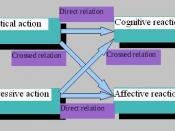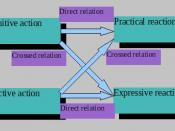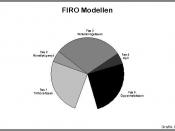Conflict Management in Work Teams
Conflict constitutes an inevitable and commonplace element of social life. Hence, it is highly prevalent in the organizational arena (De Dreu & Van de Vliert, 1997) and is a significant element in the dynamics of organizational work teams. Members of work groups and teams within organizations experience and manage conflict with their counterparts on an everyday basis.
Work teams as increasingly popular organizational structures serve to improve quality, increase efficiency, and ensure organizational sustainability. Effectiveness in group functioning depends to a large extent on the strength of the relationships within the team (such as trust in team members), which, in turn, nourish the nature of their internal interactions (Tjosvold, West, & Smith, 2003). Scholars in the area of organizational behavior and management have argued that the quality of work team interpersonal bonds is significantly affected by the group's ability to manage conflicts. Moreover, the organizational reality of a highly diverse work group composition increases the propensity for intragroup conflicts, thus turning effective dispute management into a vital asset.
Modes of handling disagreements in work teams constitute critical determinants of conflict outcomes (De Dreu, 2006). Conflict can be harmful if managed destructively, adversely affecting the quality of teams' decisions, as well as their productivity, innovation, and members' satisfaction. Conversely, constructive ways of handling conflicts provide an opportunity for surfacing problems, tracing mutually beneficial solutions, enhancing motivation to engage interpersonal tensions, and eventually, reaffirming team members' confidence in intrateam relations and fostering team performance.
Research on conflict management in work teams has proceeded in two main directions. One direction has focused on conflict types and their associations with conflict outcomes (De Dreu & Weingart, 2003b; Jehn, 1997), while the other has evolved around the dynamics of conflictmanagement (Alper, Tjosvold, & Law, 2000; Ayoko, Härtel, & Callan,


